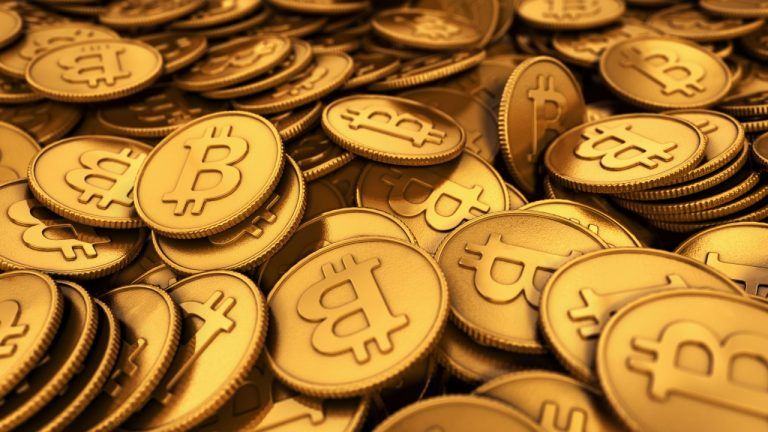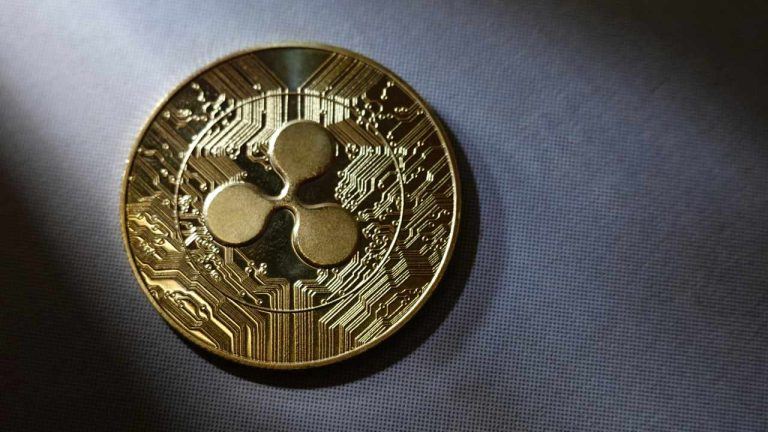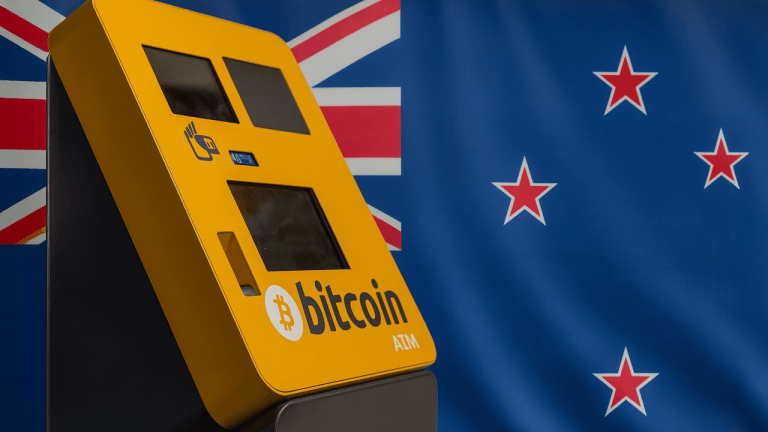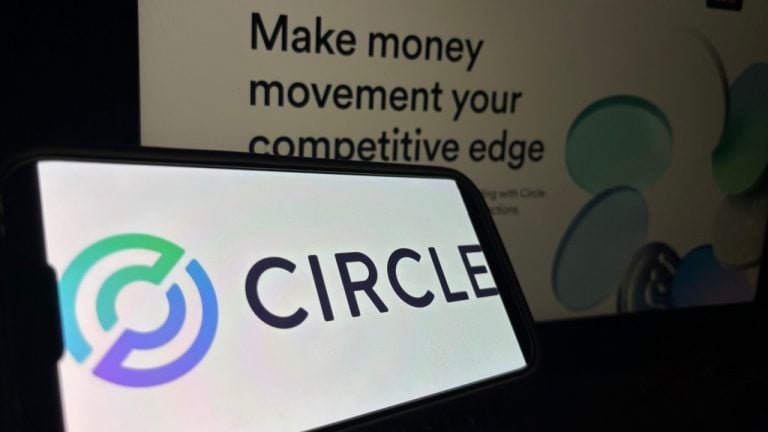TL;DR
Thesis: “The Distortion and Disempowerment of Individual Sovereignty in Asserting Value
Judgment Through the Influence of Fiat Money.”
Fiat money significantly distorts and disempowers individuals' ability to assert their value judgments in modern society. By reducing complex and multifaceted value assessments to fluctuating financial metrics, fiat money obscures important considerations such as emotional fulfillment, ethical responsibility, and social well-being.
One primary issue is monetary standardization, where the simplification of diverse values into numerical figures can lead to a narrow view of worth. For example, people may prioritize financial benefits over sentimental or ethical value, such as choosing to invest in a high-return stock rather than supporting a local
business that promotes community well-being.
Moreover, economic prioritization driven by fiat money often leads individuals to focus on immediate financial gain instead of long-term fulfillment. For instance, a worker might accept a high-paying job that conflicts with their ethical beliefs about labor practices, sacrificing personal values for economic
stability.
The market-driven perception of value also exacerbates this distortion, as individuals may equate higher prices with greater value, ignoring the intrinsic qualities of products or experiences. For example, luxury items may be overvalued, while essential goods like fresh produce might be undervalued
simply because of their lower price points.
Furthermore, the influence of fiat money on social and cultural values commodifies aspects
traditionally valued for non-monetary reasons. Art, education, and healthcare can become treated as commodities, with their worth assessed primarily in financial terms. This can result in a society that values wealth over virtues like kindness or community contribution.
The emotional and psychological effects of a money-centric society can lead to materialism, where individuals equate personal worth with financial success. This focus diminishes the perceived value of non-material aspects of life, such as relationships and personal growth, leading to stress and anxiety surrounding
financial management.
Lastly, global disparities further illustrate how fiat money undermines the sovereignty of individuals. In a world where labor and resources are valued differently across economies, the exploitation of weaker nations by stronger fiat currency systems perpetuates inequalities, making it difficult for individuals to assert their
value judgments on an equitable basis.
Antithesis: “The Empowerment of Individual Sovereignty in Asserting Value Judgment Through the
Use of Fiat Money.”
In contrast, fiat money empowers individuals to assert their value judgments in modern society by providing a standardized, accessible medium of exchange. This flexibility supports economic participation and social mobility, enabling people to make informed decisions that reflect their personal values.
Monetary standardization simplifies transactions, allowing individuals to easily exchange goods and services. For example, a small business owner can reach a global market through online sales, enabling consumers to support ethical practices and sustainable products.
The economic prioritization offered by fiat money allows individuals to allocate resources according to their values. For instance, consumers can choose to purchase fair-trade products, aligning their spending with ethical beliefs. This capability empowers individuals to prioritize their values and
make informed financial choices.
While market-driven perceptions can influence judgments, fiat money also empowers informed choice. Individuals can compare products based on price, quality, and personal values, enhancing their sovereignty in decision-making. This empowerment extends to global participation, as travelers can experience diverse cultures, deepening their appreciation for different value systems.
Moreover, fiat money supports social and cultural initiatives, allowing communities to fund projects that
reflect their values. Crowdfunding platforms enable individuals to support creative endeavors, demonstrating how financial resources can empower cultural expression.
Additionally, fiat money can enhance emotional well-being by providing financial security that allows for
personal fulfillment. Individuals can make decisions that prioritize happiness, such as taking time off to travel or pursuing passion projects. It also facilitates support for loved ones, reinforcing intrinsic values in
relationships.
Finally, when managed responsibly, fiat money can promote global equity by funding development
programs that reduce poverty. This capability empowers individuals and communities worldwide to assert their value judgments equitably, contributing to a more just society.
In conclusion, while both arguments present valid points regarding the role of fiat money, the debate
ultimately centers on how it influences individual sovereignty in asserting value judgments. The challenge lies in navigating the balance between financial considerations and intrinsic values.
~Full Thesis and Antithesis~
Thesis: "The Distortion and Disempowerment of Individual Sovereignty in Asserting Value Judgment Through the Influence and Use of Fiat Money in Modern Society"
Introduction
Fiat money, as the dominant medium of exchange in modern economies, profoundly impacts how individuals perceive and assert value. Unlike money backed by tangible assets, fiat money derives its value solely from government decree and public trust, leading to a system where the value of money is subject to inflation, manipulation, and the policies of central banks. This thesis argues that the use of fiat money distorts and disempowers individual sovereignty in asserting personal value judgments. By reducing complex and multifaceted value assessments to fluctuating financial metrics, fiat money undermines important considerations such as emotional fulfillment, ethical responsibility, social well-being, and intrinsic values. Through practical examples, this thesis will illustrate how fiat money, with its inherent instability and potential for devaluation, distorts individual perceptions of value and disempowers people in their ability to make autonomous, meaningful decisions.
Monetary Standardization and Reductionism in Fiat Money
Fiat money simplifies the complex process of value judgment by providing a standardized measure of worth,
but this standardization is inherently unstable and reductionist. For example, during periods of inflation, the value of fiat money can decrease rapidly, causing individuals to reassess their financial decisions. A person who saved money for retirement might find their savings significantly devalued due to inflation, forcing them to delay retirement or adjust their lifestyle. This instability distorts their ability to make long-term value judgments based on a reliable measure of worth, reducing complex life planning to a gamble on the
future value of money.
Furthermore, fiat money’s reductionist nature often leads to the undervaluation of non-monetary aspects
of life. For instance, in healthcare, the focus on monetary cost can overshadow considerations of patient well-being and ethical care. A hospital might prioritize treatments that are financially profitable over those that are most beneficial to the patient, leading to a distortion in the perceived value of medical care. This reduction of healthcare decisions to financial metrics demonstrates how fiat money can devalue important aspects of human life, undermining individual sovereignty in making value judgments that prioritize
well-being over profit.
Economic Prioritization and the Distortion of Value Judgment
Fiat money often leads to the prioritization of economic value over other forms of value, distorting personal judgments and societal priorities. For example, in education, the rising cost of tuition due to inflation and economic policies can force students to choose fields of study based on potential earnings rather than passion or societal contribution. A student might decide to pursue a degree in finance instead of art because the financial rewards are more certain in a fiat-based economy where the value of money fluctuates. This economic prioritization distorts the student’s ability to make a value judgment based on personal interests and societal needs, leading to a workforce driven more by financial considerations than by intrinsic motivation.
In business, the focus on profitability in a fiat money system can lead to short-term thinking and
ethical compromises. Companies might prioritize cost-cutting measures that increase short-term profits but harm employees, consumers, or the environment in the long run. For instance, a company might outsource jobs to countries with lower labor standards to reduce costs, prioritizing economic value over the
ethical treatment of workers. This distortion of value judgment, driven by the pressures of a fiat money system, demonstrates how economic priorities can override ethical considerations, disempowering individuals and organizations in their ability to make principled decisions.
Market-Driven Perception and the Devaluation of Intrinsic Worth
In a fiat money system, market-driven perceptions of value can further distort individual judgments by
inflating the importance of monetary worth over intrinsic value. For example, during a housing bubble, property prices can skyrocket due to speculative demand, leading people to overestimate the value of real estate. A family might take on excessive debt to purchase a home, believing that its value will continue to rise, only to see its worth plummet when the bubble bursts. This reliance on market-driven perceptions, influenced by the instability of fiat money, distorts their ability to assess the true value of the property based on
long-term utility and quality of life.
The devaluation of intrinsic worth is also evident in cultural and social contexts. In the art
world, for instance, the prices of artworks can be driven by speculative investments rather than artistic merit. An artist’s work might become highly valued not because of its cultural significance or emotional impact, but
because it is seen as a good financial investment. This market-driven perception, influenced by the fluid nature of fiat money, distorts the true value of art, reducing it to a commodity rather than a form of human expression and creativity.
Influence on Social and Cultural Value Judgments
Fiat money’s influence on social and cultural value judgments often leads to the commodification of experiences and relationships, distorting their true worth. For example, the rise of social media influencers who monetize their personal lives illustrates how fiat money can turn social connections into commodities. An individual might prioritize creating content that generates income over genuine interactions with friends and family, distorting their value judgments about relationships. This commodification, driven by the need to navigate a fiat money economy, undermines the intrinsic value of social bonds, disempowering
individuals in their ability to form authentic connections.
In education, the influence of fiat money can lead to the erosion of cultural and academic values. Universities might prioritize programs that attract funding or high-paying students over those that contribute to cultural enrichment or critical thinking. For example, a university might reduce funding for humanities programs in favor of business or technology courses, distorting the value judgments of students who might otherwise have pursued careers in the arts or social sciences. This shift, driven by the need to align with the economic realities of a fiat money system, devalues cultural and intellectual pursuits, disempowering individuals in their ability to make educational choices that reflect their true interests and societal needs.
Emotional and Psychological Disempowerment Through Fiat Money
The instability and volatility of fiat money can lead to emotional and psychological disempowerment, as individuals struggle to make value judgments in an unpredictable economic environment. For instance, the fear of inflation or economic downturns can lead individuals to make decisions based on financial security rather than personal fulfillment. A person might choose to stay in a high-paying but unfulfilling job out of fear that their savings will not hold value over time. This anxiety, driven by the unpredictable nature of fiat money, distorts their ability to make value judgments that prioritize emotional well-being and life satisfaction.
The psychological impact of fiat money is also evident in the way it fosters materialism and
consumerism. The constant pursuit of wealth in a fiat-based economy, where money can lose value quickly, can lead individuals to equate personal worth with financial success. For example, someone might feel compelled to purchase luxury goods not because they value them intrinsically, but because they believe these items signify success in a volatile economy. This materialistic mindset, reinforced by the pressures of a fiat money system, distorts their value judgments, leading them to prioritize financial accumulation over more
meaningful aspects of life, such as relationships, personal growth, and ethical living.
Ethical and Moral Disempowerment in Value Judgment
Fiat money can also disempower individuals and organizations in making ethical and moral value judgments by prioritizing short-term financial gains over long-term ethical considerations. For example, a company facing financial pressures might choose to cut corners on environmental regulations to reduce costs, prioritizing
immediate profits over long-term sustainability. This decision, driven by the need to navigate a fiat money system that emphasizes financial performance, distorts the company’s value judgments, leading to ethical compromises that harm society and the environment.
On a personal level, the influence of fiat money can lead individuals to compromise their moral values in pursuit of financial security. For instance, someone might choose to invest in companies or industries that they know are harmful to society or the environment, simply because these investments offer high returns in a volatile economic climate. This ethical disempowerment, driven by the need to protect one’s financial future in a fiat-based economy, distorts individual value judgments, leading to decisions that prioritize financial gain over moral integrity.
Erosion of Intrinsic Values Through Fiat Money
The pervasive influence of fiat money can erode intrinsic values by reducing them to financial considerations. For example, in the nonprofit sector, organizations might struggle to secure funding for projects that do not have immediate financial returns, even if these projects provide significant social or cultural benefits. A nonprofit focused on preserving endangered languages might find it difficult to attract funding compared to one that offers more tangible economic benefits, such as job training programs. This erosion of intrinsic values, driven by the need to align with the financial imperatives of a fiat money system, distorts the value judgments of both donors and organizations, leading to a devaluation of cultural and social initiatives that do not fit neatly into a financial framework.
In personal relationships, the influence of fiat money can also erode the intrinsic value of love, trust, and mutual support. For instance, financial stress caused by inflation or economic instability can strain relationships, leading individuals to prioritize financial stability over emotional connection. A couple might
decide to delay marriage or having children due to concerns about their financial future in a volatile economy. This erosion of intrinsic values, driven by the pressures of a fiat money system, distorts their ability to make
value judgments that prioritize emotional well-being and relational fulfillment.
Global Disparities and the Disempowerment of Value Judgment
Fiat money exacerbates global disparities, further disempowering individuals in their ability to assert value judgments. In developing countries, the instability of fiat currencies can lead to hyperinflation, eroding the purchasing power of individuals and undermining their ability to make meaningful economic
decisions. For example, in countries like Zimbabwe or Venezuela, the rapid devaluation of fiat money has led to a situation where people cannot afford basic necessities, forcing them to prioritize survival over other important values, such as education or healthcare. This disempowerment, driven by the failure of fiat money systems, distorts the value judgments of individuals and communities, leading to decisions based on immediate economic pressures rather than long-term well-being.
In contrast, in developed countries, the dominance of strong fiat currencies like the US dollar or the
euro can lead to the exploitation of weaker economies. For instance, multinational corporations might take advantage of currency fluctuations to extract resources or labor from developing countries at a fraction of their true value. This exploitation, facilitated by the global fiat money system, distorts the value judgments of both individuals and nations, leading to global inequalities that undermine the sovereignty of individuals in asserting their value judgments on a fair and equitable basis.
Conclusion
In conclusion, the pervasive influence of fiat money in modern society distorts and disempowers individuals in their ability to assert personal value judgments. By reducing complex and multifaceted value assessments to unstable and fluctuating financial metrics, fiat money overshadows important considerations such as emotional fulfillment, ethical responsibility, social well-being, and intrinsic values. This distortion affects every aspect of life, from personal decisions and relationships to global disparities and ethical considerations. To reclaim their sovereignty in asserting value judgments, individuals must critically engage with the role of fiat money in their lives, recognizing when it enhances their choices and when it imposes limitations. By prioritizing intrinsic values over financial considerations, individuals can resist the distorting effects of fiat money and assert a more holistic and empowered approach to value judgment.
Antithesis: "The Empowerment of Individual Sovereignty in Asserting Value Judgment Through the
Use of Fiat Money in Modern Society"
Introduction
Fiat money, despite its inherent challenges and criticisms, plays a crucial role in empowering individuals to assert their value judgments in modern society. Unlike money backed by tangible assets, fiat money is flexible, adaptable, and capable of supporting a dynamic economy. This antithesis argues that, rather than distorting and disempowering individuals, fiat money actually enhances personal sovereignty by providing a standardized and accessible medium of exchange. Through practical examples, this antithesis will demonstrate how fiat money facilitates economic participation, supports social mobility, and enables individuals to make informed, autonomous decisions that reflect their personal values and priorities.
Monetary Standardization and Accessibility of Fiat Money
Fiat money’s standardization simplifies economic transactions, making it easier for individuals to participate in the economy and assert their value judgments. For example, the widespread acceptance of fiat currencies like the US dollar or the euro allows people to easily exchange goods and services, both locally and internationally. A small business owner can sell products online to customers around the world, thanks to the standardization of fiat money. This accessibility empowers individuals to make economic decisions that align with their personal values, such as supporting ethical businesses or investing in sustainable products.
Moreover, fiat money’s flexibility allows governments to respond to economic challenges and stabilize the economy, which in turn supports individual sovereignty. For instance, during the 2008 financial crisis, central banks used fiat money to implement monetary policies that prevented a deeper recession. By adjusting interest rates and injecting liquidity into the economy, governments helped individuals and businesses weather the crisis. This ability to stabilize the economy through fiat money enhances individuals’ ability to make long-term value judgments, knowing that the government has tools to mitigate economic volatility.
Economic Prioritization and the Support of Personal Values
Fiat money supports economic prioritization by allowing individuals to allocate resources according to their personal values and priorities. For example, consumers can use fiat money to support businesses and causes they believe in, such as purchasing fair-trade products or donating to charitable organizations. A person who values environmental sustainability can choose to spend their money on eco-friendly products, thereby aligning their economic decisions with their ethical beliefs. This ability to prioritize spending based on personal values demonstrates how fiat money empowers individuals to assert their value judgments in the marketplace.
In addition, fiat money enables individuals to invest in their futures by providing opportunities for savings and investment. For instance, a person might save money for their child’s education or invest in a retirement fund, using fiat money as a tool to achieve long-term goals. These financial decisions are a direct expression of personal values, such as the importance of education or financial security. By enabling individuals to plan for the future and allocate resources according to their priorities, fiat money supports the exercise of personal sovereignty in value judgment.
Market-Driven Perception and the Empowerment of Choice
]While market-driven perceptions can influence value judgments, fiat money also empowers individuals
to make informed choices in the marketplace. For example, consumers can compare prices, read reviews, and research products before making a purchase, using fiat money as a medium to acquire goods and services that best meet their needs and preferences. A person shopping for a car might choose a model that offers the best balance of cost, safety, and environmental impact, using fiat money to facilitate the transaction. This ability to make informed choices based on a range of factors, including price, quality, and personal values, illustrates how fiat money empowers individuals in their economic decisions.
Fiat money also supports the empowerment of choice by enabling individuals to participate in the global economy. For instance, a traveler can use fiat money to experience different cultures and explore the world, enriching their understanding of value from diverse perspectives. The ability to travel and engage with different cultures is a powerful way to assert personal value judgments, broadening one’s horizons and deepening one’s appreciation of global diversity. Fiat money facilitates these experiences, enhancing individuals’ sovereignty in making value judgments that reflect a global perspective.
Influence on Social and Cultural Value Judgments
Fiat money plays a significant role in supporting social and cultural value judgments by enabling individuals and communities to fund and promote initiatives that reflect their values. For example, crowdfunding platforms allow people to pool fiat money to support creative projects, social causes, or cultural initiatives. A community might raise funds to preserve a historic site, using fiat money to assert the
cultural value of their heritage. This ability to mobilize resources through fiat money empowers individuals and communities to protect and promote their cultural and social values.
In education, fiat money provides the resources necessary to support diverse academic programs and cultural institutions. For instance, scholarships funded by fiat money allow students from diverse backgrounds to pursue higher education, empowering them to make value judgments about their futures based on their talents and interests, rather than financial constraints. This support for education and cultural enrichment demonstrates how fiat money can be a tool for empowering individuals to assert their value judgments in ways that align with their personal and societal values.
Emotional and Psychological Empowerment Through Fiat Money
Fiat money can also contribute to emotional and psychological empowerment by providing individuals with the financial security and flexibility needed to pursue personal fulfillment. For example, a person who has saved enough money might decide to take a career break to travel or explore a passion project, using their
financial resources to prioritize personal growth and emotional well-being. This ability to use fiat money to create opportunities for personal fulfillment illustrates how it can empower individuals to make value judgments that prioritize their happiness and life satisfaction.
The emotional empowerment provided by fiat money is also evident in the way it enables individuals to support their loved ones. For instance, a parent might use fiat money to fund their child’s education or help a family member through a difficult time. These financial decisions are an expression of love and support, reflecting the individual’s values and priorities. By enabling people to provide for themselves and their families, fiat money empowers individuals to make value judgments that enhance their emotional well-being and strengthen their relationships.
Ethical and Moral Empowerment in Value Judgment
Fiat money can also empower individuals and organizations to make ethical and moral value judgments by providing the resources needed to support ethical initiatives and responsible business practices. For example, a company might use its profits to invest in sustainable technologies or support fair labor practices, using fiat money to align its business operations with its ethical values. This ability to use financial resources to promote ethical practices demonstrates how fiat money can be a tool for asserting moral judgments in the marketplace.
On a personal level, fiat money allows individuals to make ethical choices in their everyday lives. For instance, a consumer might choose to purchase products from companies that prioritize sustainability, even if they are more expensive. This decision reflects the individual’s ethical values and their willingness to use fiat money to support businesses that align with those values. By enabling individuals to make ethical choices in their spending and investment decisions, fiat money empowers them to assert their moral judgments in ways that have a positive impact on society and the environment.
Preservation of Intrinsic Values Through Fiat Money
Fiat money can also support the preservation of intrinsic values by providing the financial resources necessary to protect and promote cultural, social, and environmental initiatives. For example, philanthropic organizations use fiat money to fund conservation efforts, cultural preservation projects, and social justice
initiatives. A foundation might donate money to preserve an endangered species or protect a historic landmark, using fiat money to assert the intrinsic value of biodiversity and cultural heritage. This support for non-monetary values demonstrates how fiat money can be a tool for preserving and promoting
intrinsic values in society.
In personal relationships, fiat money can be used to express and reinforce intrinsic values such as love, trust, and mutual support. For instance, a couple might save money to buy a home together, using their financial resources to build a life based on shared values and goals. This use of fiat money to support long-term relationships and family life illustrates how it can empower individuals to make value judgments that prioritize emotional and relational well-being.
Global Equity and the Empowerment of Value Judgment
Fiat money, when managed responsibly, can contribute to global equity and the empowerment of value
judgments across different societies. For example, international aid and development programs funded by fiat money can help reduce poverty and promote economic stability in developing countries. A government might provide financial assistance to support education and healthcare in a developing nation, using fiat money to empower individuals in those countries to make value judgments that improve their quality of life. This support for global equity demonstrates how fiat money can be a tool for empowering individuals and
communities to assert their value judgments on a fair and equitable basis.
In developed countries, fiat money facilitates international trade and cooperation, enabling individuals and businesses to engage with the global economy. For instance, a company might use fiat money to invest in fair-trade practices, ensuring that workers in developing countries are paid fairly and treated ethically. This use of fiat money to promote global equity reflects the company’s values and its commitment to ethical business practices. By enabling individuals and organizations to participate in the global economy in ways that reflect their values, fiat money empowers them to make value judgments that contribute to a
more just and equitable world.
Conclusion
In conclusion, fiat money, despite its challenges, plays a crucial role in empowering individuals to assert their value judgments in modern society. By providing a standardized and accessible medium of exchange, fiat money facilitates economic participation, supports social mobility, and enables individuals to make informed, autonomous decisions that reflect their personal values and priorities. Rather than distorting and disempowering individuals, fiat money enhances their sovereignty by providing the financial resources and flexibility needed to navigate a complex and dynamic economy. Through its role in supporting ethical initiatives, preserving intrinsic values, and promoting global equity, fiat money empowers individuals and communities to assert their value judgments in ways that have a positive impact on society and the world.
[link] [comments]

You can get bonuses upto $100 FREE BONUS when you:
💰 Install these recommended apps:
💲 SocialGood - 100% Crypto Back on Everyday Shopping
💲 xPortal - The DeFi For The Next Billion
💲 CryptoTab Browser - Lightweight, fast, and ready to mine!
💰 Register on these recommended exchanges:
🟡 Binance🟡 Bitfinex🟡 Bitmart🟡 Bittrex🟡 Bitget
🟡 CoinEx🟡 Crypto.com🟡 Gate.io🟡 Huobi🟡 Kucoin.

















Comments